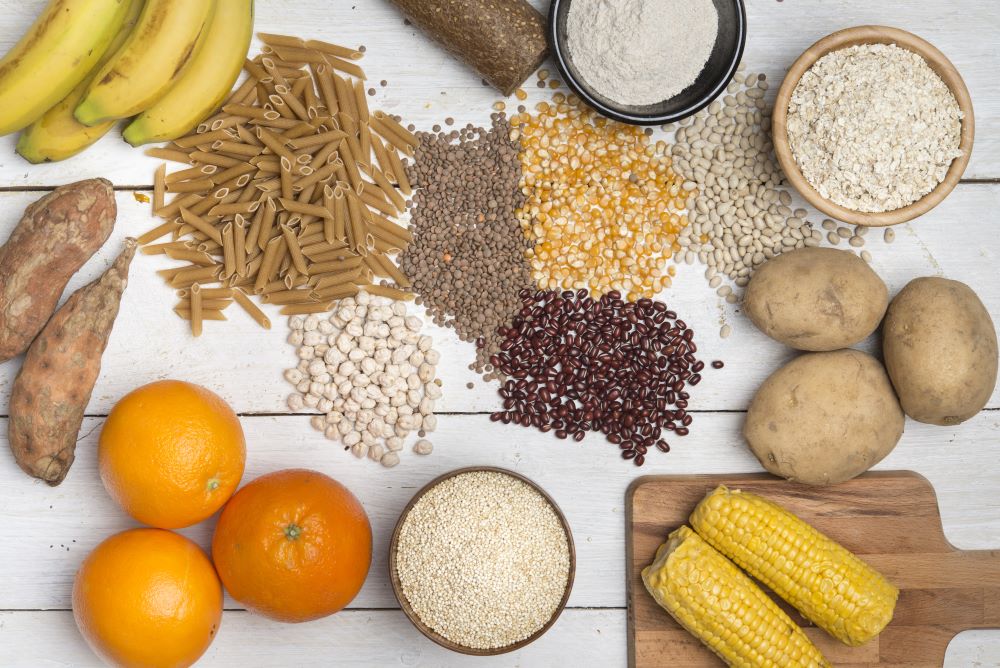Are Low Carb Diets Healthy?

Carbohydrates are one of the main dietary sources of energy for the body. Aside from lactose (milk sugar), all carbohydrates are synthesized by plants. A lot of people get confused about what a carbohydrate is. They often go on fad diets and assume they are avoiding all carbohydrates by avoiding grains without realizing that fruits and vegetables are also carbohydrates. There are of course unhealthy and healthy carbohydrates and it comes down to eating the RIGHT carbs. All meals should contain a certain amount of carbohydrates – as a functional wellness consultant, I advocate for my nutrition and wellness clients to follow a Metabolic Type eating plan which includes a healthy balance of fats, proteins, AND carbohydrates for maintaining their ideal weight and feeling their best mentally and physically.
There are two main types of carbohydrates: simple and complex. Simple carbohydrates consist mainly of fruits and sugars. Complex carbohydrates consist of vegetables, grains, and starches. Both simple and complex carbohydrates can be refined. Refined carbohydrates are grains, vegetables, starches, and/or fruits that have been stripped of all or most bran, fiber, and nutrients. They also may be exposed to extreme heat or drying, colors, dyes, chemicals, and/or added hydrogenated oils and synthetic vitamins. This category of carbohydrates is made up of mostly starch and sugar and provides very little nutritional value to the body, merely acting as a “filler.” When you eat refined carbs, your bloodstream is flooded with sugar which triggers a surge of insulin to clear the sugar from your blood. If abused, refined carbohydrates can lead to mild or severe weight gain and can significantly increase your potential for diabetes, cardiovascular disease, hypertension, and more.
Some examples of refined carbohydrates include: instant oatmeal, potato flakes, refined breads, bagels, cereal, pastas, pastries, sugar-sweetened beverages and jams, fruit juices, and even gluten free items made primarily with starch, potato starch, rice starch, corn starch, etc. It is important to minimize or avoid refined carbohydrates and instead focus on fresh, organic fruits and vegetables. Try to consume grains in their natural state, meaning, they haven’t been altered in any way. Examples of unrefined whole grains include whole grain rice, millet, buckwheat, whole oats, amaranth, quinoa, and wild rice.
Can I help you with your nutrition and making healthy food choices? I’d love to hear from you – get in touch.

